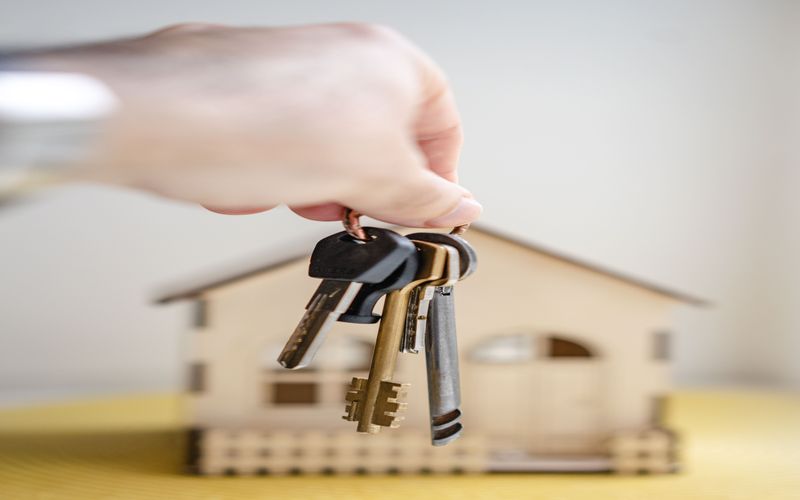How To Prepare Your Credit To Buy a House
For many, a house is their biggest purchase. Being conscious of your financial wellbeing can help lower the stresses associated with such a big financial decision. If you are worried regarding home loan qualification, creating a solid foundation of good credit and good financial habits can help you achieve your aims.
Know what’s in your credit reports
Your credit reports tell the lender’s financial story that your financial history is in agreement with. The information behind this story determines your credit score, so you want to make sure the information in this narrative is true.
Read through your credit reports carefully and recognize both accounts and account activity along with your credit rating. If you’ve identified something you believe to be inaccurate on your TransUnion credit report, you can dispute it online directly with our site. If you find inaccuracies on other credit reports, you might need to submit a dispute with those agencies individually.
Remember that your credit report does not always reflect the most recent instance on your account. There is a good chance your report will need to be updated, but you may not need to put in a dispute. For instance, if you made a payment recently, it may not show up on your credit report until the following billing cycle, but it will likely be recorded in the following month.
Build confidence in managing your credit
To improve your credit limit before buying a home, you may wish to consult a mortgage broker about credit repair companies. Before getting on a credit repair company’s plan, know that there’s no service that a credit repair company can provide that you don’t have the ability to do for yourself. And you can save money by learning to maintain your credit information yourself.
It can seem as if you are filling out heaps of paperwork as you go through the home-buying process. For such a large purchase, lenders will always have to be very thorough and check everything with a fine-toothed comb. Ensuring your credit report is accurate and up-to-date will help you avoid clerical delays. Not only that, but checking your credit reports as early as possible and knowing the information is accurate, as well, can prevent delays in closing the deal.
Pay down debt you currently have
Lowering your credit card balances is a strong strategy to raise the trustworthiness of your financial credit and encourage lenders you’ll be able to pay for potential home mortgage payments. Your credit utilization, the degree to which the credit limit you’re utilizing you’re utilizing, is a major credit score factor. Paying down your credit card debt, if possible, is a smart way before you apply or qualify for formal approval.
Know what you can afford
Your bank will approve you for a given amount, but you do not have to feel pressure to borrow up to that total. It is important to have financial goals and stick to them. Buying a property can be an emotionally charged experience, but maintaining your financial plan and knowing your numbers will allow you to make the best financial choice.
Many people focus on the dangers of spending unnecessary amounts of money on frivolous items, but home buying is significantly more beneficial. While impulse spending might set you back thousands of dollars in interest, purchasing a home will save you hundreds of thousands over the course of decades. The mortgage calculator provided by TransUnion can help you estimate your monthly mortgage costs based on your loan terms, down payment and property value.
Avoid taking on additional debt if you can
You may be advised by your real estate team not to apply for new credit while you are closing on your home. This is for a good reason. Your house loan application represents your finances both in their current state and in your mix of debt and assets. Applying for a new loan may reflect a change in your financial condition and give your lenders pause about your ability to make payments on the original mortgage offer.
Not only that, but applying for new credit can temporarily lower your credit score. Your credit score may be considered a factor in your annual percentage rate (APR) on your mortgage. Even a minor change in interest rate can translate into thousands of dollars over the life of your mortgage. Thus, if you apply for a new credit or loan, it’s best to wait a while before applying for a mortgage loan.
Your credit score is just one important part of the equation
Carrying a very good credit rating can help you qualify for a mortgage loan with a low-interest rate. The requirement to obtain a residence varies by lending institution and house loan program. There are a huge variety of credit rating constructions, so the score you can see in the application, website or service you are considering using might not be the one your lending institution uses to make a lending choice.
It is crucial to keep in regular contact with your mortgage lender throughout the mortgage application process. It will also be essential to consider your credit rating, which is just one of many factors your mortgage lender is considering. They may request various financial information, such as your income, checking and savings accounts, brokerage accounts, current loans, and others.
But keep in mind, your credit score relies on information in your credit reports. So be sure you’re reviewing your credit reports on a regular basis, even when you’ve purchased your home and you’re looking forward to what comes next. It ought to be a regular element of your financial maintenance routine. We’ve developed an interactive guide to help you review credit reports and understand how each section may impact your score.

